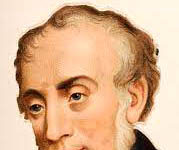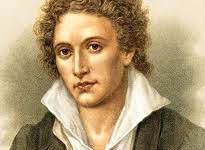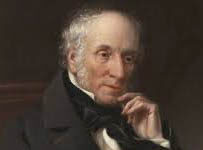Contributions of S T Coleridge to the History of Literary Theories and Principles
Contributions of S T Coleridge to the History of Literary Theories and Principles
Samuel Taylor Coleridge (1772-1834) was an English poet and critic of the Romantic Age. Here to note that Coleridge was the only writer in the English language whose all works, except only a poem entitled The Ancient Mariner were incomplete. All his works remain in a fragmentary, chaotic and defused state, but what remains bears the testimony of greatness. As a poet, he was interested in philosophical, mystic and supernatural themes. On the other hand, as a critic, he was extraordinarily a true romantic i.e. impressionistic, individualistic, philosophic and psychological. His criticisms generally fall into two phases— (a) Practical Criticism and (b) Theoretical Criticism. His criticisms are scattered all over his fragmentary essays, articles, letters, leaflets and books. But his reputation as a great, even greater critic mainly rests on his two voluminous books— (1) Lectures on Shakespeare and Other Poets and (2) Biographia Literaria. The first book is mainly replete with his practical criticism done after his own romantic outlook. The second book is utterly theoretical. In this book, he delivers his viewpoints, principles, and theories on literature, especially on poetry. Here, keeping his practical criticism aside, a discussion is being done on his theoretical criticism only selecting and compiling from his scattered and chaotic writings. Coleridge lays down the principles and theories on such themes as— on Imagination and Fancy, on the Definition, Nature, and Function of Poetry, on the differentiation between Prose and Poetry, and at last, on the use of the languages and style of poetry. Let us discuss them one by one briefly as follows:
Imagination and Fancy
First of all, Coleridge throws his viewpoint on Imagination and Fancy in poetry. He says that imagination is a mental picture of something formed by the perception of external objects. He divides imagination into two phases—(a) The Primary Imagination and (b) The Secondary Imagination. He says that primary imagination is merely the power of receiving the impression of the external world through the senses. It is the power of perceiving the object of the senses, both in their parts and as a whole. It is an involuntary act of the mind. The human mind receives impressions and sensations from the outside world involuntarily and unconsciously. The primary imagination is universal. It is passed by all. On the other hand, Coleridge says, Secondary Imagination is the re-enforced, developed, modified, or refined setting of the primary imagination into the objects of beauty. He says that the secondary imagination is the root of all poetic activity. It enhances beauty and power and harmonizes and reconciles the thought and feelings in poetry. This secondary imagination synthesizes and fuses the various faculties of the soul, as— perception, will, intellect and emotion. And more it fuses and synthesizes the internal with the external, and the subjective with the objective.
In short, the primary imagination is the raw material of the perception of the external world and the secondary imagination is the refined remodeled, and recreated mental picture of the primary imagination which creates beauty.
Difference Between Imagination and Fancy
After saying about imagination with its classifications and nature, Coleridge goes on to talk about the Difference Between Imagination and Fancy. He says that Fancy and Imagination are not the same things. Their activities are different. Fancy is the artistic device of the use of imagination. Imagination is creative but fancy is not. The difference between the two is like the difference between a mechanical mixture and chemical compound. Imagination is like a chemical compound in which different ingredients are brought together to form something new in which all the ingredients lose their individual properties. On the other hand, Fancy is like a mechanical mixture in which some ingredients are brought together but the ingredients do not lose their own properties. Coleridge illustrates this point by quoting two passages from William Shakespeare’s ‘Venus and Adonis’. The following lines from this poem are quoted by Coleridge to show the example of the use of imagination in poetry:
Look! How a bright star slootheth from the sky
So glides he in the night from Venus’s eye.
Quoting these two lines, Coleridge writes — “How many images and feelings are here brought together without effort and without discord— the beauty of Adonis,—the rapidity of the flight—the earning yet helplessness of the enamored gazer— and a shadowy, ideal character thrown over the whole.”
As an example of fancy, on the other hand, Coleridge Quotes the following passage from the same poem:
Full gently now she takes him by the hand
A lily prisoned in a goal of snow
Or ivory in an alabaster band
So white a friend engirds so white a foe.
In these quoted lines images are drawn from memory; they don’t interpret into one another.
To say in brief, for Coleridge, Fancy is the dress and Imagination is the sole of poetic genius.
To comment on the viewpoint of Coleridge on Imagination and Fancy, it is to say that Coleridge was discriminating in bringing out the nature and use of imagination in poetry. No critic before him tried this discrimination. Though there were Joseph Addison (1672–1719) and Wordsworth who said about the nature and use of imagination in poetry— yet they were not as detailed, clear, and discriminating as Coleridge was. Wordsworth used Fancy and Imagination almost as synonyms. Coleridge’s treatment of the subject is, on the whole, characterized by greater depth, originality and philosophical subtlety. It is his infallible contribution to the theory of literature.
Definition, Nature and Function of Poetry
Secondly, Coleridge goes on to say about the Definition, Nature and Function of Poetry. Coleridge was the only romantic poet and critic who gave more emphasis on the rhyme and musical arrangement of words and hence he makes the Definition of poetry as, “Poetry is the musical composition of best word in best order.”
In making the definition of poetry, Coleridge seems that his definition is based on the manner, not on the matter. He says nothing about the matter of poetry.
About the Nature of Poetry, he says that the nature of poetry lies not in the contents but in the manner of the contents. The musical and metrical arrangement of words is the main characteristics of poetry. Moreover, poetry deals with imagination which colors the thought of the poet. To clarify his views on the nature of poetry he differentiates between prose and poetry. He says, “A poem contains the same elements as a prose composition.” Both use words. But the main difference between the two is in the arrangement of words. A poem combines words differently.
Like other romantic poets and critics, Coleridge also determines the Function of Poetry after the motto of “Art for Art’s sake”. He says that poetry has no instructive functions and should never be had. Its function is to afford pleasure only by arousing our sensibility.
He, in determining the function and nature of poetry, says that Meter and Rhyme are the urgent elements in poetry without the two poetry would be no poetry, but only prose. Here Coleridge distinguishes between Poetry and Poem which till then were thought to be synonymous. He says that the “activity of the imagination is poetry.” On the other hand “poem is the verbal expression of that activity”. By saying so, he wants to mean that the musical and metrical composition of anything is a poem. But poetry is the use of imagination in it. He says that for a piece of writing to be legitimate poetry i.e. a poem and poetry, there should have both the elements—the activity of imagination and the use of meter and rhyme. In the words of Coleridge himself:
”Rhyme and meter are integral to a (legitimate) poem, an essential part of it because the pleasure of poetry is a special kind of pleasure, pleasure which results both from the parts and whole.”
Language of Poetry
On the use of the Word and Language of Poetry, Coleridge says that the language of poetry should be unique. A poet must select the best words and must arrange them in the best order. He advocates neither the use of rustic language nor artificial language but the language which is best. The best language results from the use of the best words in the best order.
Again in determining the Nature of Poetry, he employs a phrase from his own. The phrase is, “Willing Suspension of Disbelief”. He explains this phrase in the following manner:
“The poet does not require us to be awakened and believe. He solicits us only to yield ourselves to a dream; and this too, with our eyes open and with our judgment perdue behind the contain really awaken us at the first motion of our will: meantime only not to disbelieve.”
He says that only a momentary suspension of disbelief is required for the enjoyment of imaginative literature.
His phrase “Willing Suspension of Disbelief” was his own invention and really this phrase has universal truth. For better enjoyment of any imaginative piece of literature, one must have a Willing Suspension of Disbelief.
In brief, these are the contributions of Samuel Taylor Coleridge to the history of the theories of literary criticism. And by means of these contributions, Coleridge has been able to establish himself as a great critic of literature, especially a critic of literary theory. He is great and his greatness lies in his originality of thoughts. His determination to the imagination-its nature, divisions and comparison with fancy is really praiseworthy. He was the first critic who examined the nature and function of imagination in detail. Secondly his phrase, “Willing Suspension of Disbelief” makes a significant advance over earlier theories on the subject.
As a theory giver of literary criticism, he is great no doubt, but as an art critic he suffers from some defects as:
First, he was not systematic in discussing his views. He often digresses from his point.
Secondly, many times he lacks analysis and arguments in establishing his views.
Thirdly, he is not apparent in propounding his distinction between poem and poetry. In defining poetry he proceeds to describe a poet and from the poet, he proceeds to say about the nature of imagination. Many times he is so brief and many times he is so prolix. Though he has some outstanding weaknesses as a critic yet he is a greater critic of his age because he established the romantic creed of criticism by practicing it in the art of literary criticism. His ‘Lectures on Shakespeare and Other Poets’ and ‘Biographia Literature’ are the two voluminous books of criticism of the romantic era. 0 0 0.
Contributions of S T Coleridge to the History of Literary Theories and Principles
You May Like:
‘Poetry is the Criticism of LIfe’ Mathew Arnold-An Explanation
Contributions of S T Coleridge to the History of Literary Theories and Principles
N. B. The article originally belongs to the book entitled ‘ Essays on Literary Theory and Principle‘ by Menonim Menonimus.
Contributions of S T Coleridge to the History of Literary Theories and Principles
Books on Literary Criticism by M. Menonimus:
- World Short Story Criticism
- World Poetry Criticism
- World Drama Criticism
- World Novel Criticism
- World Essay Criticism
- Indian English Poetry Criticism
- Indian English Poets and Poetry Chief Features
- Emily Dickinson’s Poetry-A Thematic Study
- Walt Whitman’s Poetry-A Thematic Study
- Critical Essays on English Poetry
- Tawfiq al-Hakim’s Novel: Return of the Spirit-An Analytical Study
- Tawfiq al-Hakim’s Novel: ‘Yawmiyyat Naib Fil Arayaf’-An Analytical Study
- Analytical Studies of Some Arabic Short Stories
- A Brief History of Arabic Literature: Pre-Islamic Period (500 AD-622 AD)
- A Brief History of Arabic Literature: Early Islamic Period (622 AD-661 AD) …
Related Search:
- Literary Criticism of T S Coleridge
- History and Principles of Literary Criticism
- Critical Analysis of Coleridge’s Imagination and Fancy
- Coleridge’s Definition of Poetry
- Arnold’s Concept of Poetry as a Criticism of life
- Poetry Definition Types
- Contributions of Coleridge to Literary Theories and Principles











